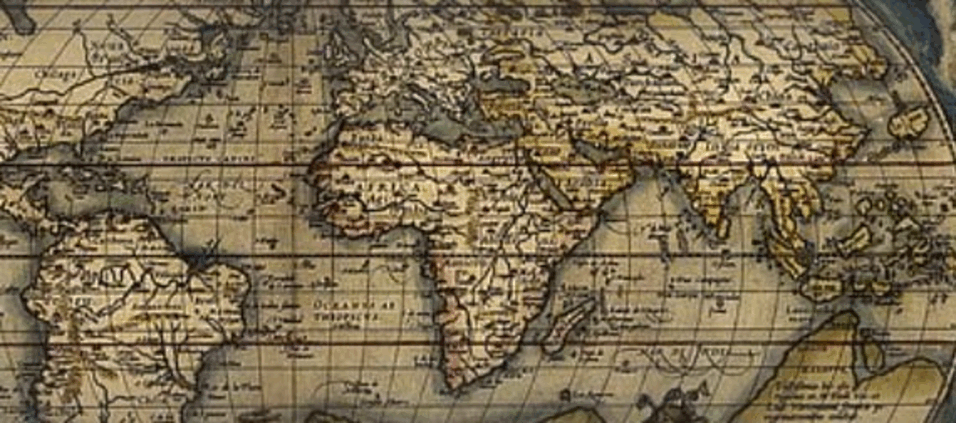Annual theme
In 2024-25, our annual theme will be devoted to the study of (im)mobilities in global history. Collaborating with scholars in the field of migration studies at the University of Vienna, we aim to broaden our understanding of mobility, including the movement of people, goods, and ideas. We will also reflect on the methodological concern how to grant immobile and disconnected people and phenomena greater attention in global history.
Global History Month in October
This October, the Vienna Global History Group celebrates Global History Month, featuring a series of insightful events that explore the evolving dynamics and perspectives of global history. Scholars, students, and history enthusiasts are invited to participate in discussions that delve into the intersections of communication, global processes, and historical narratives. The program offers a unique opportunity to engage with experts on themes ranging from the global dynamics of publics to the implications and challenges of global history in a contemporary context.
Fr, 11 October, 16.00-17.30, Hörsaal 2, Main Building; University of Vienna:
Panel Discussion "Globalizing Publics: A New Direction for Global Histories of Communication", with Valeska Huber, Sophie-Jung Kim, and Ismay Milford, chaired by Christian De Vito
We are very pleased to start the semester with a panel discussion, followed by a reception to open the academic year). Incoming Marie Curie Fellow Sophie-Jung Kim, Ismay Milford from FU Berlin and Valeska Huber will discuss the concept of globalizing publics and its potential for new global histories of communication in a time of increasingly polarized debates and of publics which are expanding and fragmenting at the same time.
Th, 17 October, 18.00-20.00, Österreichische Akademie der Wissenschaften. Theatersaal:
Panel Discussion "Wie viel Globalität braucht die Geschichte?", with Jürgen Osterhammel, Valeska Huber, Franz Fillafer, and Juliane Schiel
We are thrilled to co-host a panel with the well-known global historian Jürgen Osterhammel on the topic of "Wieviel Globalität braucht die Geschichte?" (in German). Jürgen Osterhammel (professor emeritus of the University of Konstanz) will be in a timely conversation with Franz Fillafer (ÖAW), Valeska Huber and Juliane Schiel to discuss the assumptions, potential and blind spots of global history in a time of re-emerging nationalisms and hardening borders.
Fr, 18 October, 17.00-19.00. Marietta-Blau-Saal, Main Building, University of Vienna:
Book Presentation by Zhanna Popova, "Coerced Labour, Forced Displacement, and the Soviet Gulag, 1880s-1930s"
Zhanna Popova in conversation with Christian De Vito, Matthias Kaltenbrunner and Charles Shaw.
In her book, Popova offers a longterm social historical perspective on practices of forced labor and displacement in Russia and sheds light on the emergence of the Gulag - one of the central symbols of twentieth-century mass political violence.
Vienna Global History Colloquium
We are also delighted to continue the Vienna Global History Colloquium where we invite Vienna-based global historians to discuss their ongoing research. This year, we will have four presentations, all addressing our annual topic of (Im-)Mobilities.
Programme (pdf)
Venue: Institut für Zeitgeschichte, 1090 Wien, Spitalgasse 2-4, Hof 1, Seminarraum 1
8 November 2024, 13.15-14.45
Immanuel Harisch and Goran Music
Spatial and Social Mobility within the Non-Aligned Movement: A Typology of Yugoslav-Zambian Development Cooperation
17 January 2024, 13.15-14.45
Rayen Cornejo Torres and Berthold Molden
Viena Latina: Documenting the Memory of Latin American Migration to Vienna
14 March 2025, 13.15-14.45
Lena Christoph
Transit on the Island: Anti-Communist Russian Displaced Persons Navigating Resettlement from the Philippines, 1949-1953
23 May 2025, 13.15-14.45
Anna-Marie Kroupova
Czech Mates? Art Students form the Decolonized World in Czechoslovakia after 1968
This will be a brown bag lunch event, so feel free to bring your own food - drinks will be provided.

